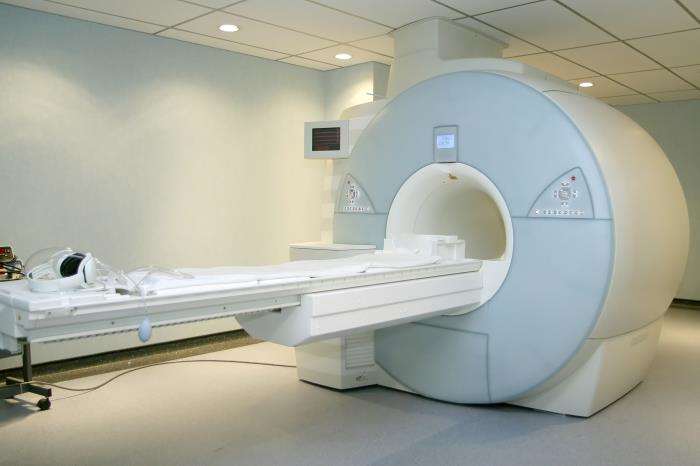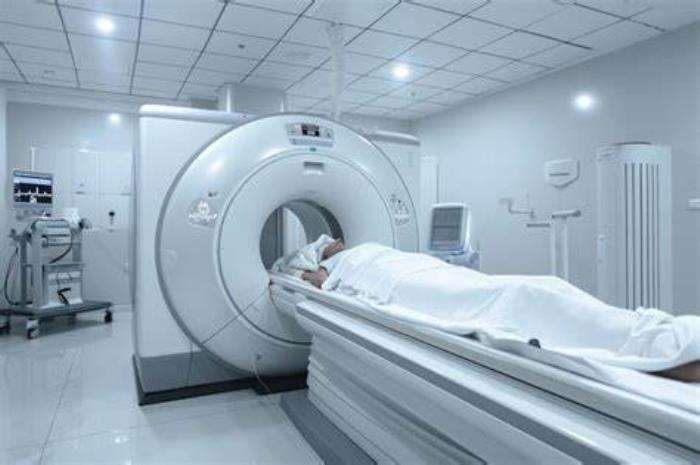Colon cancer, also known as colorectal cancer, originates in the colon or rectum. It is crucial to understand the staging of colon cancer, which refers to the extent of the disease and its spread in the body. Accurate staging is essential for determining the appropriate treatment plan and prognosis. The most widely used system for staging colon cancer is the AJCC (American Joint Committee on Cancer) system, which classifies cancer based on tumor size, lymph node involvement, and metastasis.
The Role of Imaging in Colon Cancer Management
Imaging plays a vital role in the management of colon cancer, particularly in staging and monitoring the disease. Various imaging modalities, including CT scans, MRI, and PET scans, help visualize the tumor and assess the presence of metastases. Each imaging technique offers unique advantages, but PET scans are increasingly recognized for their ability to provide functional imaging, which can be particularly useful in identifying active cancer cells.
What is a PET Scan?
A Positron Emission Tomography (PET) scan is a nuclear medicine imaging technique that provides information about the metabolic activity of tissues. During a PET scan, a small amount of radioactive material is injected into the patient, which emits positrons. These positrons interact with electrons in the body, resulting in the emission of gamma rays that are detected by the scanner. The resulting images allow healthcare providers to assess the metabolic activity of colon cancer cells, aiding in staging and treatment planning.

How PET Scans Assist in Staging Colon Cancer
PET scans are instrumental in the staging of colon cancer, particularly in identifying distant metastases that may not be visible on other imaging modalities. By highlighting areas of increased metabolic activity, PET scans can detect cancer spread to organs such as the liver or lungs. This is particularly important for determining the stage of the cancer, which influences treatment decisions, including surgical options and the need for chemotherapy.
Advantages of Using PET Scans in Colon Cancer Diagnosis
The use of PET scans in colon cancer diagnosis offers several advantages. One of the primary benefits is their ability to detect metabolic activity in cancer cells, which can be more sensitive than anatomical imaging. Additionally, PET scans can help differentiate between benign and malignant lesions, guide biopsies, and monitor treatment response. This functional imaging modality can significantly improve the accuracy of colon cancer staging and subsequent management.
Limitations of PET Scans in Colon Cancer Assessment
Despite their advantages, PET scans have certain limitations in the assessment of colon cancer. One significant limitation is the potential for false positives, where benign conditions may mimic cancerous activity. Additionally, PET scans are less effective in detecting small tumors or early-stage cancers, particularly in the colon. The cost and availability of PET scans can also be barriers in some healthcare settings, potentially limiting their use in routine clinical practice.
Combining PET Scans with Other Imaging Techniques
In clinical practice, PET scans are often combined with other imaging techniques, such as CT scans or MRI, to provide a comprehensive evaluation of colon cancer. This multimodal approach allows for the integration of anatomical and functional information, enhancing the overall accuracy of staging and treatment planning. For instance, a PET/CT scan combines the metabolic information from a PET scan with the detailed anatomical images from a CT scan, providing a more complete picture of the disease.
The Role of PET Scans in Monitoring Treatment Response
PET scans are not only valuable for initial staging but also play a crucial role in monitoring treatment response in patients with colon cancer. After the initiation of treatment, follow-up PET scans can help assess whether the cancer is responding to therapy by evaluating changes in metabolic activity. This information can guide oncologists in making informed decisions about continuing, modifying, or changing the treatment regimen based on the patient's response.
Impact of PET Scans on Treatment Decisions
The results of PET scans can significantly impact treatment decisions for patients with colon cancer. Positive findings indicating metastasis may lead to a shift in treatment strategy, such as the initiation of systemic therapy or palliative care. Conversely, negative findings can provide reassurance and potentially allow for surgical intervention. Therefore, integrating PET scan results into the clinical decision-making process is essential for optimizing patient outcomes.
Patient Experience During a PET Scan
Understanding the patient experience during a PET scan is essential for alleviating anxiety and ensuring cooperation. The procedure typically involves the injection of a radioactive tracer, followed by a waiting period to allow for distribution in the body. Patients are then positioned in the scanner, which is a comfortable and non-invasive process. It is important for healthcare providers to inform patients about what to expect, including potential side effects and the significance of the scan results.

Safety Considerations and Risks of PET Scans
While PET scans are generally considered safe, there are some safety considerations and risks associated with the procedure. The use of radioactive tracers involves exposure to a small amount of radiation, which is typically within acceptable limits. However, the cumulative radiation exposure from multiple scans should be monitored, particularly in patients requiring frequent imaging. Additionally, allergic reactions to the tracer, although rare, can occur and should be discussed with patients prior to the procedure.
Future Directions in PET Imaging for Colon Cancer
The field of PET imaging is evolving, with ongoing research focused on improving the accuracy and utility of PET scans in colon cancer. Advances in radiotracer development, such as those targeting specific cancer biomarkers, may enhance the sensitivity of PET imaging. Furthermore, the integration of artificial intelligence in image analysis holds promise for better interpretation of PET scan results, potentially leading to more personalized treatment approaches for patients with colon cancer.
Comparative Effectiveness of PET Scans Versus Other Imaging Modalities
When considering imaging options for colon cancer, the comparative effectiveness of PET scans versus other modalities, such as CT and MRI, is an important topic. While CT scans are excellent for anatomical assessment, PET scans provide unique insights into the metabolic activity of tumors. In many cases, a combination of these imaging techniques is necessary to achieve optimal diagnostic accuracy. Healthcare providers must weigh the benefits and limitations of each modality when planning patient care.
Cost-Effectiveness of PET Scans in Colon Cancer Management
The cost-effectiveness of PET scans in the management of colon cancer is a critical consideration for healthcare systems. While PET scans can be more expensive than other imaging modalities, their ability to provide early detection of metastases and monitor treatment response can lead to improved outcomes and potentially lower overall treatment costs. Evaluating the long-term benefits of PET scans in terms of survival rates and quality of life is essential for justifying their use in clinical practice.
Guidelines for the Use of PET Scans in Colon Cancer
Several professional organizations have developed guidelines for the use of PET scans in colon cancer. These guidelines help clinicians determine when PET imaging is appropriate for staging, treatment monitoring, and follow-up. Recommendations typically emphasize the importance of integrating PET scans with other imaging modalities and clinical findings to ensure comprehensive patient management. Adhering to these guidelines can enhance the quality of care for patients with colon cancer.
Patient Education and Understanding of PET Scans
Educating patients about the role of PET scans in colon cancer is vital for informed decision-making. Patients should understand the purpose of the scan, the procedure involved, and the implications of the results. Providing clear and accessible information can help alleviate concerns and encourage patients to engage actively in their treatment process. Healthcare providers should ensure that patients have the opportunity to ask questions and express any apprehensions they may have regarding the PET scan.
Role of Precision Medicine in Advanced Colon Cancer Care
Learn about the transformative impact of precision medicine in advanced colon cancer care. By tailoring treatments to the unique genetic profile of a patient’s cancer, precision medicine enhances effectiveness and minimizes side effects. Discover how this approach is reshaping the future of colon cancer treatment.
How Age and Gender Impact Colon Cancer Risk
Understand the critical factors of age and gender in colon cancer risk. This article examines how the likelihood of developing colon cancer increases with age and explores gender-based differences in diagnosis and prognosis. Gain valuable insights into how these factors influence screening and prevention strategies.
Collaboration Among Healthcare Professionals in Utilizing PET Scans
Effective collaboration among healthcare professionals is essential for the optimal use of PET scans in colon cancer management. Oncologists, radiologists, and nuclear medicine specialists must work together to interpret PET scan results accurately and integrate them into the overall treatment plan. Multidisciplinary team meetings can facilitate discussions about imaging findings and ensure that all aspects of patient care are considered, leading to more comprehensive and coordinated treatment approaches.
Best Colon Cancer Treatment in India
The Best Colon Cancer Treatment in India includes advanced procedures such as minimally invasive surgery, chemotherapy, and targeted therapies to achieve the best outcomes for patients.
Colon Cancer Treatment Cost in India
The colon cancer treatment cost in india is competitive, providing patients with affordable access to high-quality care and innovative treatment options.
Best Colon Cancer Specialists in India
The Best Colon Cancer Specialists in India bring years of expertise in diagnosing and treating colon cancer, ensuring personalized treatment plans and compassionate care for every patient.
FAQs About PET Scans in Colon Cancer Staging and Monitoring
What is the primary purpose of a PET scan in colon cancer?
The primary purpose of a PET scan in colon cancer is to assess the metabolic activity of cancer cells, aiding in the staging of the disease and monitoring treatment response.
How does a PET scan differ from a CT scan?
A PET scan provides functional imaging by detecting metabolic activity, while a CT scan offers detailed anatomical images. Combining both can enhance diagnostic accuracy.
Are there any risks associated with PET scans?
While PET scans are generally safe, they involve exposure to a small amount of radiation and can pose risks such as allergic reactions to the tracer. Discussing these risks with a healthcare provider is advisable.
How often should PET scans be performed in colon cancer patients?
The frequency of PET scans in colon cancer patients varies based on individual circumstances, including treatment response and clinical guidelines. Regular follow-ups are essential for monitoring.
Discover the Best Oncologists and Cancer Hospitals in India
When it comes to cancer treatment, finding the right specialist and hospital can make a significant difference in the outcome. In this blog, we have compiled a list of the top oncologists and cancer hospitals across major cities in India, ensuring that you have access to the best care available.
Top Oncologists in Major Cities
For those seeking expert oncologists, we have identified the best specialists in key cities:
Leading Cancer Hospitals
In addition to finding the right specialist, choosing the right hospital is crucial for comprehensive cancer care. Here are the top hospitals in major cities:
Get more indepth information on Cancer treatments and their costs
Conclusion
Finding the right oncologist and hospital is the first step in your cancer treatment journey. Explore the links above to learn more about the top specialists and hospitals in your area.